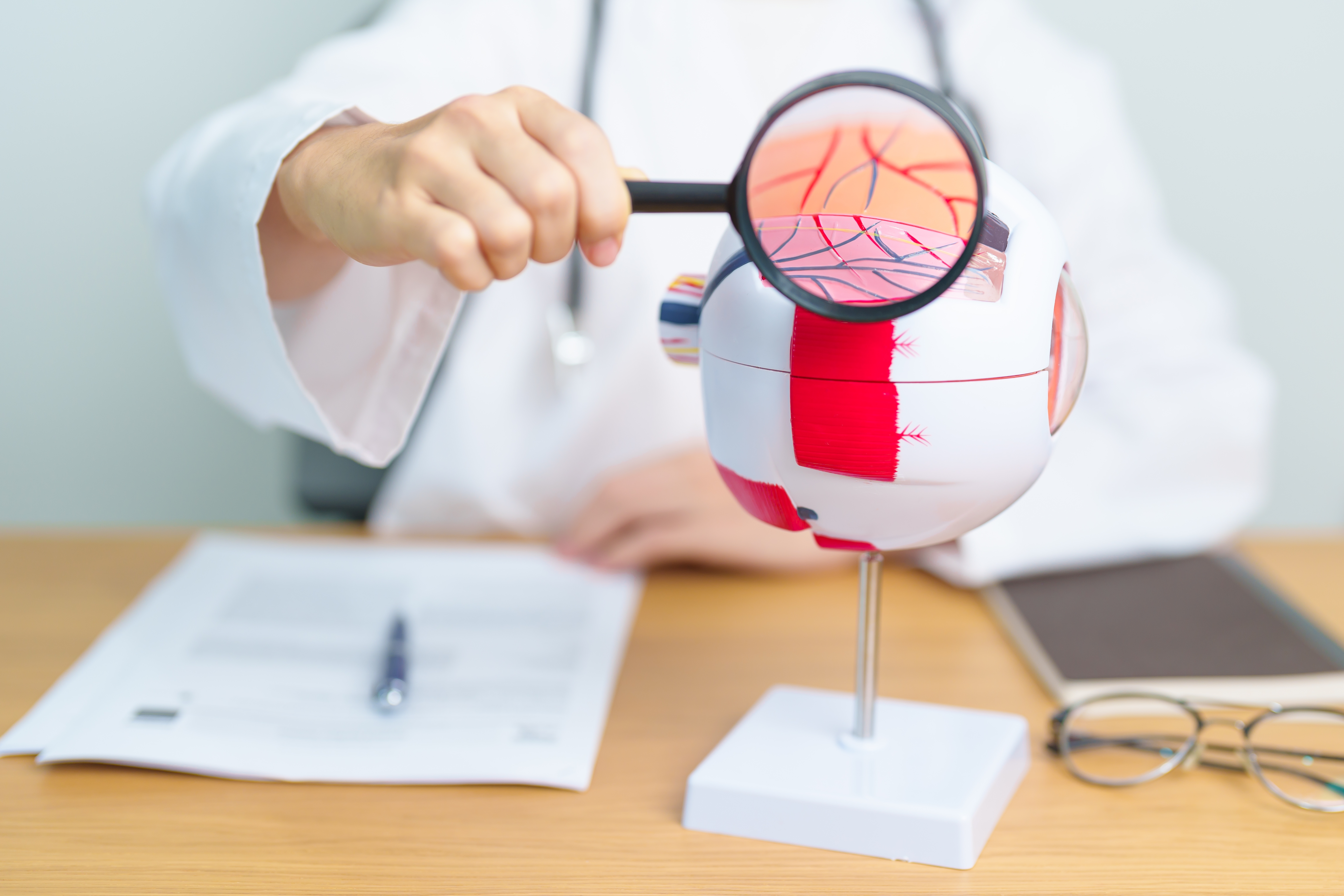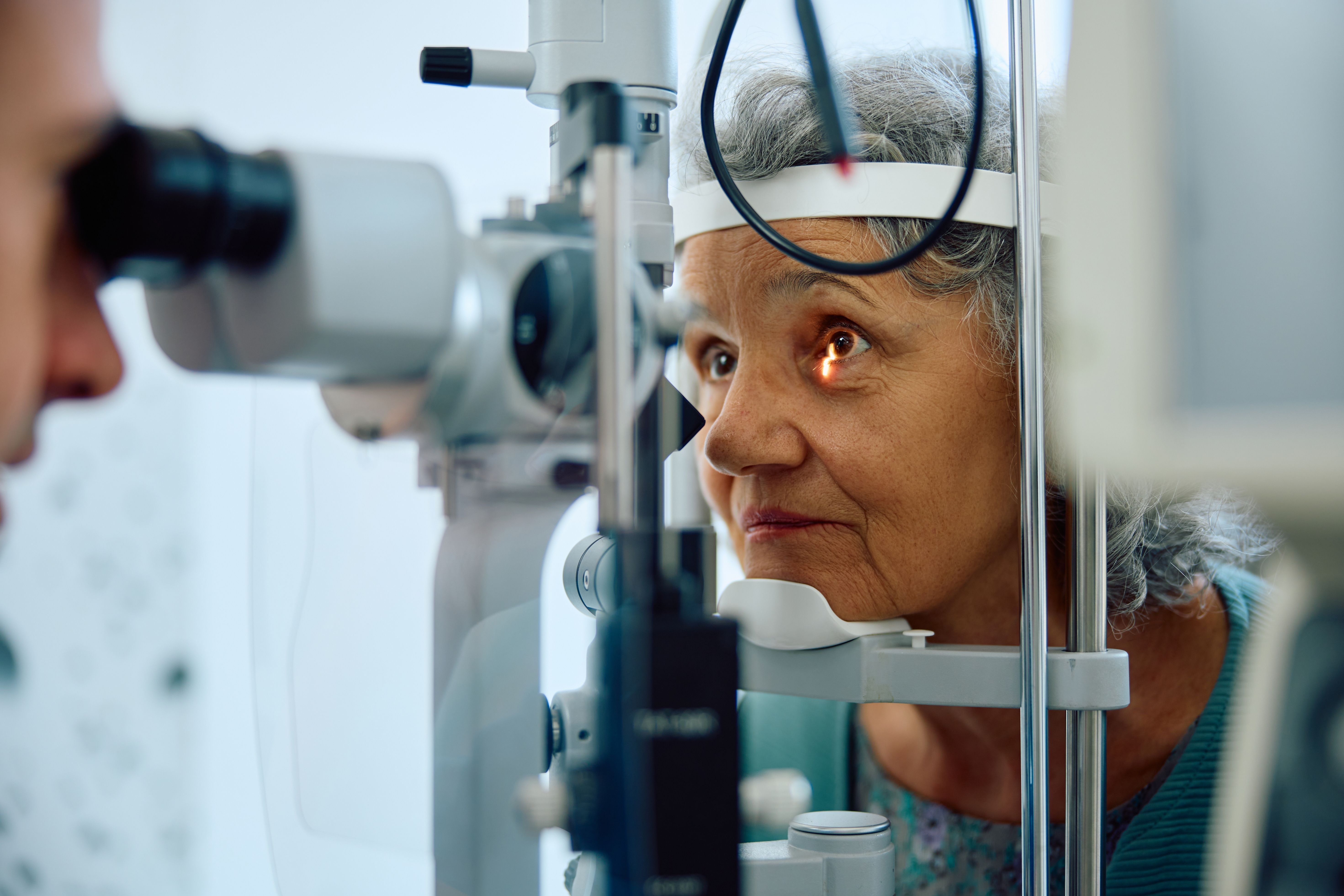How to Minimize Your Risk of Vision Loss From Macular Degeneration
July 3, 2024
If you are experiencing problems with the quality of your vision, like blurry vision or blank spots, it's important that you schedule a comprehensive exam with your eye care provider right away. These symptoms could be the signs of macular degeneration, which can severely impair your vision if not promptly treated.
Keep reading to learn how to minimize the risk of vision loss from macular degeneration!
What is Macular Degeneration?
Macular degeneration, also known as age-related macular degeneration (AMD), is an eye condition that affects central vision. Macular degeneration affects the macula, which is part of the retina and is responsible for central vision.
Macular degeneration can lead to the partial or total loss of the central field of vision. If left untreated, macular degeneration can impair your vision to the point where you are unable to read small print, drive a car, or clearly see familiar faces.
What Are The Types of Macular Degeneration?
There are two main types of AMD: dry macular generation and wet macular degeneration. Both types of AMD are often asymptomatic in the early stages, so people might not realize they have the condition until their vision has been affected.
 Dry macular degeneration is the most commonly diagnosed form, accounting for the majority of all cases of macular degeneration. In dry macular degeneration, tiny yellow proteins, called drusen, form under the macula.
Dry macular degeneration is the most commonly diagnosed form, accounting for the majority of all cases of macular degeneration. In dry macular degeneration, tiny yellow proteins, called drusen, form under the macula.
As the drusen collects, they thin the macula, causing it to atrophy. The symptoms of dry macular degeneration include blurred vision, blank spots in central vision, an inability to see in low light, and distorted vision.
These symptoms often develop slowly, taking years to affect a person’s vision. Wet macular degeneration is caused by the development of abnormal blood vessels under the retina and macula.
As these blood vessels leak blood and fluid, they form a bulge in the macula, which causes people to see dark spots in the center of vision.
Unlike dry macular degeneration, the symptoms of wet macular degeneration can come on suddenly and cause immediate vision impairment.
The symptoms of wet macular degeneration include rapid loss of central vision, severely distorted vision, and large blind spots.
What Treatments are Available for Macular Degeneration?
There is no cure for macular degeneration, but early treatment options can slow progression and make symptoms less severe. The treatments available depend on the type of macular degeneration a person has been diagnosed with.
Dry Macular Degeneration
Currently, no medications or other treatments are available to treat dry macular degeneration. However, studies have shown that taking high-dose formulations of antioxidant vitamins and minerals may help reduce the risk of further vision loss.
Researchers have found that a formulation of the following may be beneficial for people with intermediate- to late-stage dry AMD:
- Vitamin C
- Vitamin E
- Lutein
- Zeaxanthin
- Zinc (zinc oxide)
- Copper (cupric oxide)
Wet Macular Degeneration
Treatments for wet macular degeneration include medications, photodynamic, and laser therapy. In some instances, treatments for wet AMD may help recover some lost vision.
Medications
The medications used to treat wet AMD are called anti-VEGF (anti-vascular endothelial growth factor) drugs. These drugs are used to block the production of VEGF, which is a protein that produces new blood vessels.
Anti-VEGF drugs are delivered directly into the vitreous, the gel-like fluid that fills the eye. These drugs must be administered every four to six weeks to maintain their beneficial effects.
Photodynamic Therapy
Photodynamic therapy for wet AMD uses a combination of an injectable light-sensitive drug called verteporfin and a laser. The laser targets abnormal blood vessels, which activates the verteporfin to close the blood vessels, stopping leakage.
Laser Therapy
Laser therapy, or photocoagulation, is a procedure in which a laser is used to seal abnormal blood vessels under the macula. The goal of laser therapy is to stop the vessels from bleeding.
What are the Risk Factors for Macular Degeneration?
While anyone can develop macular degeneration, certain risk factors can increase the likelihood of a macular degeneration diagnosis. These factors include:
Age: AMD most commonly affects people over the age of fifty and is the leading cause of vision loss in Americans sixty-five and older.
Family History: People with a family history are more likely to develop AMD.
Smoking: People who smoke, or former smokers, are two to four times more likely to have AMD than non-smokers.
UV Light Exposure: Prolonged exposure to UV light can damage the cells in the retina, leading to AMD.
High Blood Pressure: Uncontrolled high blood pressure can cause damage to the blood vessels in the eye, which can worsen the effects of wet AMD.
Diabetes: Diabetic retinopathy, a complication of diabetes, causes the growth of abnormal blood vessels which can damage the macula.
Can Macular Degeneration Be Prevented?
While there is no known way to prevent macular degeneration, you can lower your risk by:
- Quitting smoking
- Protecting your eyes from UV light
- Living a healthy lifestyle
- Maintaining healthy blood pressure and cholesterol levels
You can protect your vision from the effects of macular degeneration by scheduling annual comprehensive eye exams. These exams include tests that look for the signs and symptoms of macular degeneration, leading to early diagnosis and early, more effective treatment options.
Do you want to have your eyes checked for signs of macular degeneration? Schedule an appointment at Advanced Eye Care in Bel Air, MD, today!



